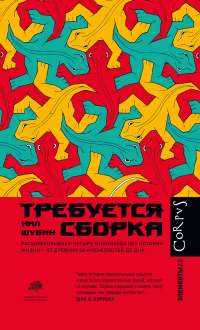Книга Требуется сборка. Расшифровываем четыре миллиарда лет истории жизни – от древних окаменелостей до ДНК - Нил Шубин
На нашем литературном портале можно бесплатно читать книгу Требуется сборка. Расшифровываем четыре миллиарда лет истории жизни – от древних окаменелостей до ДНК - Нил Шубин полная версия. Жанр: Книги / Домашняя. Онлайн библиотека дает возможность прочитать весь текст произведения на мобильном телефоне или десктопе даже без регистрации и СМС подтверждения на нашем сайте онлайн книг knizki.com.
Шрифт:
-
+
Интервал:
-
+
Закладка:
Сделать
Перейти на страницу:
Перейти на страницу:
Внимание!
Сайт сохраняет куки вашего браузера. Вы сможете в любой момент сделать закладку и продолжить прочтение книги «Требуется сборка. Расшифровываем четыре миллиарда лет истории жизни – от древних окаменелостей до ДНК - Нил Шубин», после закрытия браузера.
Книги схожие с книгой «Требуется сборка. Расшифровываем четыре миллиарда лет истории жизни – от древних окаменелостей до ДНК - Нил Шубин» от автора - Нил Шубин:
Комментарии и отзывы (0) к книге "Требуется сборка. Расшифровываем четыре миллиарда лет истории жизни – от древних окаменелостей до ДНК - Нил Шубин"
























